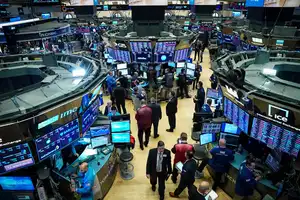The idea that CFDs are inferior because traders do not actually hold the underlying securities is a misconception.
In reality, CFD contracts function as agreements between the trader and the CFD broker, and they are tied to the price movements of the underlying asset. Traders speculate on the price direction of the asset, and the CFD contract mirrors these movements. This means that traders can profit from both rising and falling markets without owning the actual asset.
The concern about counterparty risk is valid for any financial transaction, and it’s crucial to choose a reputable and regulated CFD broker to mitigate this risk. Reputable brokers adhere to strict regulations and segregate client funds to ensure their safety.
The misconception that CFD trading is fundamentally different from other derivatives like futures, options, and swaps is crucial to address. In essence, all of these financial instruments involve contracts based on the price movements of underlying assets. They provide traders with opportunities to speculate on market movements without requiring physical ownership of the assets.
CFD Trading is Risky
An essential point regarding the risk involved in CFD trading largely stems from the high leverage that some brokers offer. Indeed, trading with excessively high leverage, such as 500:1 or 1000:1, can lead to significant losses and potential account blowouts, even with small price movements against the trader.
As you rightly pointed out, using such extreme leverage is not advisable, and most seasoned traders understand the importance of managing risk and using appropriate leverage that aligns with their trading strategies and risk tolerance. The amount of leverage a trader uses should be carefully considered, and it should not be taken to the extreme, regardless of what the broker may offer.

In the trading world, leverage is a double-edged sword. It can amplify gains, but it can also magnify losses. Successful traders understand the importance of preserving their capital and avoiding excessive risk-taking. They use leverage judiciously and implement risk management techniques such as setting stop-loss orders to protect their positions.
It’s crucial for traders to educate themselves about leverage, risk management, and the mechanics of CFD trading before venturing into live trading. Many traders start with simulated accounts to practice their strategies and build confidence before transitioning to real-money trading.
While brokers do have a responsibility to provide clear disclosures about the risks involved in CFD trading, the ultimate decision and responsibility lie with the trader. Each individual must assess their own risk tolerance, trading skills, and financial situation to determine the appropriate level of leverage to use.
CFD Trading is Gambling
The classification of CFD trading as a form of gambling is a point of debate among various individuals and regulatory bodies. While some people may hold the belief that CFD trading is akin to gambling, it’s essential to approach the topic with an open mind and a clear understanding of the underlying mechanics.
At its core, CFD trading involves speculating on the price movements of various financial assets without owning the underlying assets themselves. Some critics argue that this lack of ownership makes it resemble gambling. However, it’s crucial to recognize that many forms of financial trading, including traditional stock trading, involve speculation and risk-taking as well.
The comparison of CFD trading to gambling is often accompanied by the implication that gambling is undesirable and should be restricted or prohibited. However, it’s essential to distinguish between responsible trading and reckless behavior.
While it’s true that trading, including CFD trading, carries inherent risks, responsible traders use risk management techniques, such as stop-loss orders, to limit potential losses. The key is to approach trading with a well-defined strategy, discipline, and risk management, rather than relying on pure luck or chance.
The notion of “betting on the future price of something” applies to various aspects of life, including business investments and financial decisions. In the financial markets, participants make informed decisions based on available information, analysis, and market trends. This process is more complex and informed than simple gambling, which often relies on chance alone.
Regulators in different countries have different perspectives on CFD trading, and some may choose to impose restrictions or limitations. However, many countries allow regulated CFD trading and recognize it as a legitimate financial activity.
Like any form of trading or investing, CFD trading requires education, practice, and a responsible approach. It provides opportunities for traders to achieve financial goals and grow their capital. However, it also demands that traders understand and manage the associated risks.
In the end, the responsibility lies with the individual trader to approach CFD trading with knowledge, diligence, and an awareness of the risks involved. When conducted responsibly, CFD trading can be a valuable and potentially profitable financial activity, enabling traders to pursue their financial aspirations.




